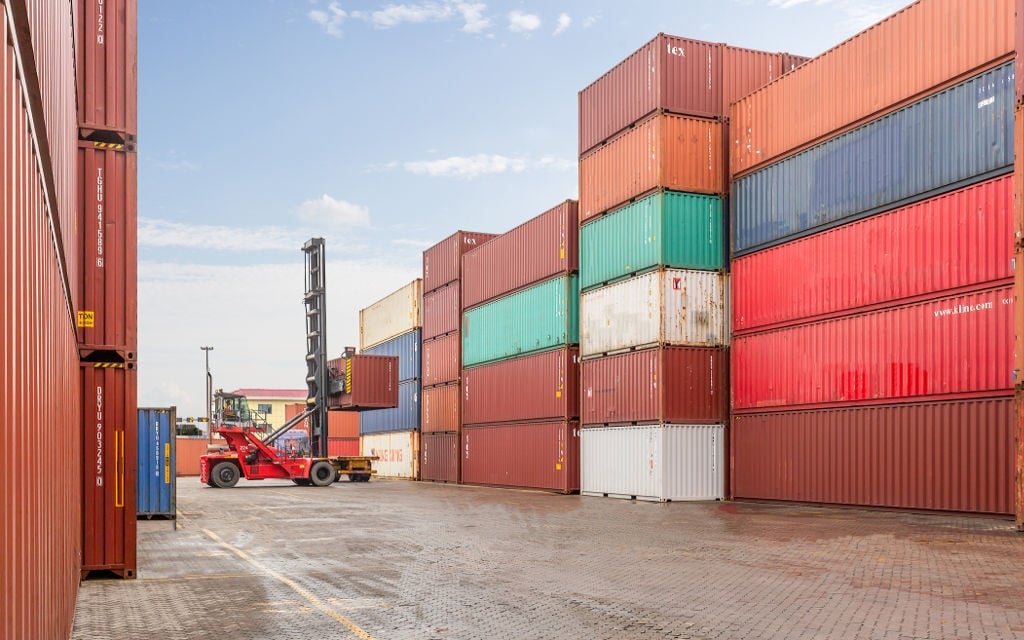
- Transnet's main ports were operating at 100% again by Friday, according to Agri SA.
- Its force majeure will end on 2 August at container terminals in the ports of Cape Town, Durban, Ngqura and Gqeberha.
- Concerns have been raised about cold storage constraints at the port of Durban.
Transnet's main ports were up and running by Friday, with the state-owned company's force majeure due to lift in a matter of days. But the last ripples of a recent cyberattack that forced the logistics company to switch to manual operations were still being felt.
On 22 July, Transnet was hit by a "cyberattack, security intrusion and sabotage", according to the company, with its division Transnet Port Terminals being among the hardest hit. The hack disrupted normal processes and damaged equipment and information, culminating in the declaration of a force majeure at the ports' container terminals.
The force majeure will end on 2 August at container terminals in the ports of Cape Town, Durban, Ngqura and Gqeberha.
Transnet said on Friday that it believed it was in a position to service its customers and meet contractual obligations again.
Jolanda Andrag, head: Agri SA Commodity Chamber, said Transnet's main system and supporting links were still continuing to come online, but the Durban port was already fully operational by Thursday afternoon, while the port in Cape Town – which was 80% operational on Thursday – was expected to be fully up and running by Friday.
In the Eastern Cape, the port in Gqeberha is operational, while the port of Nqurha, about 20km from Gqeberha – which was 70% operational by Thursday – was expected to be fully operational by Friday.
At the port in East London, containers and automobiles are being processed again.
Transnet has been asking clients to help with the evacuation of containers in order to make space for new containers coming in, says Andrag. The evacuation of containers has been going well, she adds.
Constraints
Gavin Kelly, CEO of the Road Freight Association (RFA) says all external links are up nationally for all the ports. But, he adds, there have been constraints to warehousing for certain goods outside the ports.
Terry Gale, chairperson of the Exporters Club of the Western Cape, says they are now receiving export stacks which means they can start loading export containers.
"This appears be for the main Terminals in SA, excluding Coega and Port Elizabeth," he added.
Jannie de Villiers, CEO of Grain SA is very happy with what he calls a "highlight" for the maize industry, which could manage to export about 95 000 tonnes via the Durban port this week. The maize is destined for the Far East.
But some lingering concerns remain.
Paul Matthew, CEO of the South African Association of Meat Importers and Exporters (AMIE SA), said the latest update from Friday morning indicates that about 400 reefer (refrigerated) containers are at the Durban port, "with nowhere to go".
Cold storage with a total capacity of 40 000 tons was destroyed in Durban during the recent unrest.
"The government must urgently approve moving sealed containers to Gauteng cold storage facilities where they can be safely tested by inland veterinary teams and released to processors," he urged.
Turning to Maputo
On Thursday, Justin Chadwick, CEO of the Citrus Growers' Association of Southern Africa (CGA), said South African citrus exporters are turning to the port in Maputo, Mozambique, as an alternative after having been impacted first by the unrest in KwaZulu-Natal and then by Transnet ports' IT system being hit by a cyberattack, causing huge backlogs.
There is currently a backlog of fruit across the citrus supply chain causing temporary delays when it comes to fruit being exported to key markets. In order to ease pressure on South African ports, growers are diverting fruit to the Maputo port. It is the peak period for citrus exports and about 45% still needs to be shipped.
Fin24 reported on Tuesday how the cyber sabotage caused chaos at SA's ports, with perishable food stuck in containers and freight trucks, amid massive frustration among both importers and exporters.
Some importers indicated that the recent unrest, followed by the Transnet IT hack, will likely push more companies to look to other ports in neighbouring countries as alternatives.
